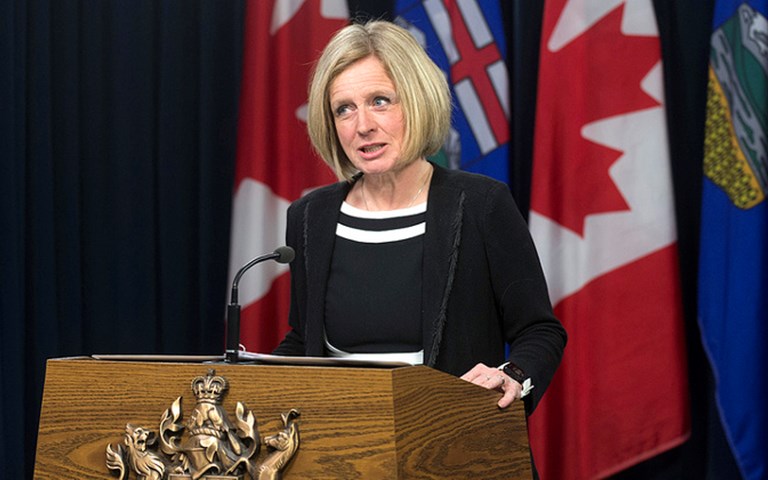Alberta Premier Rachel Notley is committed to do "whatever it takes" to see the Trans Mountain pipeline built. Courtesy of the Government of Alberta
The Alberta government appears to be following through on threats of a trade war with British Columbia over the controversial Trans Mountain Pipeline Project. In a press release on Monday, Alberta announced new legislation being introduced that would give the government power to restrict exports of natural gas, crude oil, and refined fuels across its borders.
If passed, the legislation could allow Alberta’s government to require all companies exporting energy products to obtain a license in order to continue or face a fine.
B.C.’s NDP government has positioned itself in consistent opposition of the Trans Mountain project, prompting Kinder Morgan to suspend construction last week until some agreement is reached.
Without the pipeline, Albertan oil products continue to have difficulty reaching a global market, negatively affecting price. In a press release, Alberta Premier Rachel Notley reiterated Alberta’s stance, saying: “We did not start this fight, but let there be no doubt we will do whatever it takes to build this pipeline”, adding that it is Albertan jobs and livelihoods at stake. Nearly seven per cent of Albertans are employed in the province’s energy sector, which accounts for 21 per cent of its annual gross domestic product.
According to the National Energy Board, most of the gasoline consumed in B.C. comes from Alberta via the existing Trans Mountain pipeline. While the potential ramifications for both B.C. and the energy sector at large are significant, Albertan Minister of Energy Margaret McCuaig-Boyd – at who’s discretion export restrictions would be applied – stressed in a press release that the powers the legislation would afford the province are “not powers Alberta wants to use”, but “would do so if it means long-term benefit for the industry, for Alberta and for Canada.”
Tim McMillan, president and CEO of the Canadian Association of Petroleum Producers, told CIM Magazine the situation is “frustrating” for all Canadians, but called the Albertan government’s approach “the most effective for moving [B.C. Premier David Horgan] off his position while being as delicate as possible to have the least effect on producers in Alberta.”
McMillan added that his hope was that no tariffs be imposed and that ultimately this would prove only a “short term” problem for Canada.



